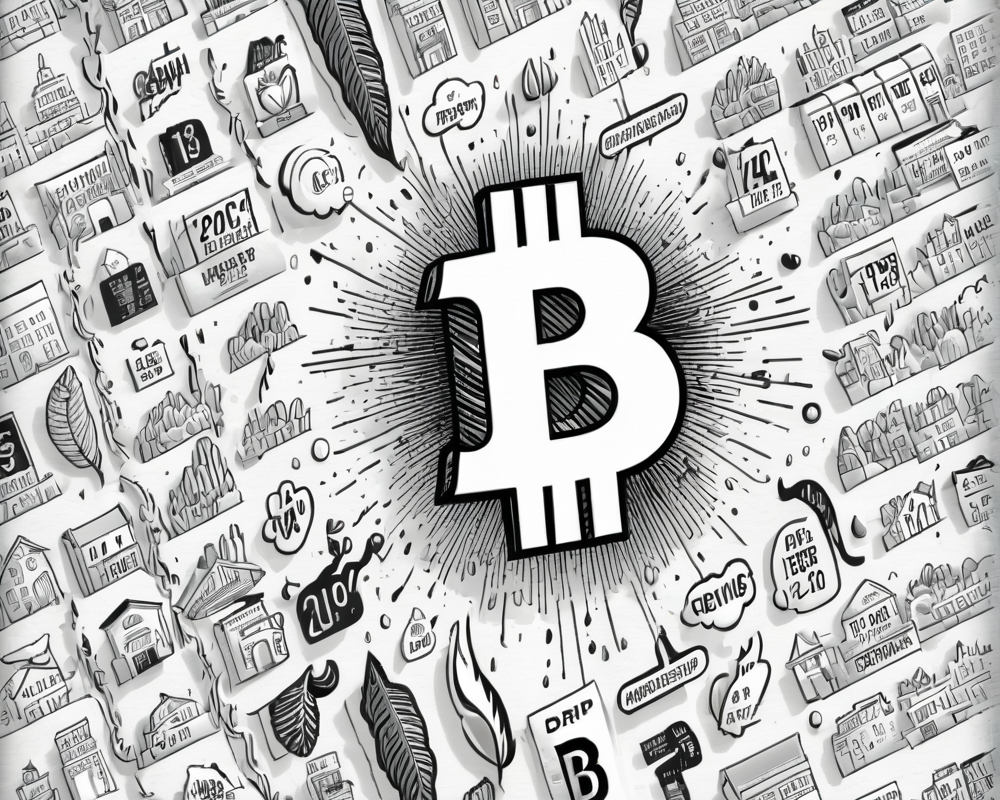Bitcoin: A Love Story
Let’s kick things off with some honesty: I adore Bitcoin. This digital currency buzz has changed my life and connected me with countless other enthusiasts. However, with great love comes great responsibility, hence the need to address some harsh realities about Bitcoin’s true performance.
Breaking Down Bitcoin
Originally crafted by the elusive Satoshi Nakamoto, Bitcoin was envisioned as a peer-to-peer electronic cash system, a way to send money without the meddling hands of banks. It operates off an elegant but complex public ledger where transactions get bundled into blocks. Each block links to the previous one, forming an unbreakable “chain” – hence, you might’ve heard the term “blockchain.” The magic behind this technology all comes down to miners, who solve complicated puzzles to confirm transactions and keep the whole ecosystem running smoothly. But hold your horses; this process involves a bit of a time delay.
Time Is Money… Literally!
Now, here’s where the plot thickens: transactions aren’t exactly speedy. Thanks to an ingenious difficulty adjustment that every so often pegs the average solving time of a Bitcoin block to about 10 minutes (don’t ask for a fast pass), we could be waiting around for hours for that transaction to confirm. Ever needed to buy a bag of chips and had to wait for it? Good luck!
Cha-Ching: The High Cost of Transactions
If you think waiting is annoying, just wait until you see the fees. Transaction costs can skyrocket to around $24, and that’s not for something fancy – just to send a bunch of data! Now plopping down almost as much as your last dinner out just to buy a pack of gum seems a bit ludicrous. The reality is that while Bitcoin has a shiny image, it doesn’t exactly hold its ground when you want to use it for daily purchases.
Bye-Bye Market Share
But wait, there’s more. Bitcoin used to roll solidly at the top with a massive market share, dominating the crypto world like a heavyweight champ. Fast forward to today, and it’s slipping, now occupying a mere 36% of the cryptocurrency market. Other “altcoins” are fast outpacing Bitcoin in transaction efficiency and fees, and they’re not shy about it. This slow erosion of exclusivity is not a terribly good sign for its future in the market.
The Future of Bitcoin: Digital Gold?
So what’s next for BTC? Some crypto enthusiasts suggest Bitcoin should ditch the hustle and bustle of everyday purchases and opt for the respectable role of ‘digital gold.’ In effect, this turns Bitcoin into what they call a store of value. However, if Bitcoin’s transaction utility fades, it risks becoming just another shiny object on investors’ shelves.
Conclusion: The Dichotomy of Bitcoin
In a nutshell, Bitcoin’s arrival broke new ground for payments but left a trail of inefficiencies and scuffles over future protocol improvements. As Bitcoin battles to reclaim its status or transform into a digital asset, it’s clear that the journey’s only just begun, and only time will tell if it will evolve further or fade into the background.


